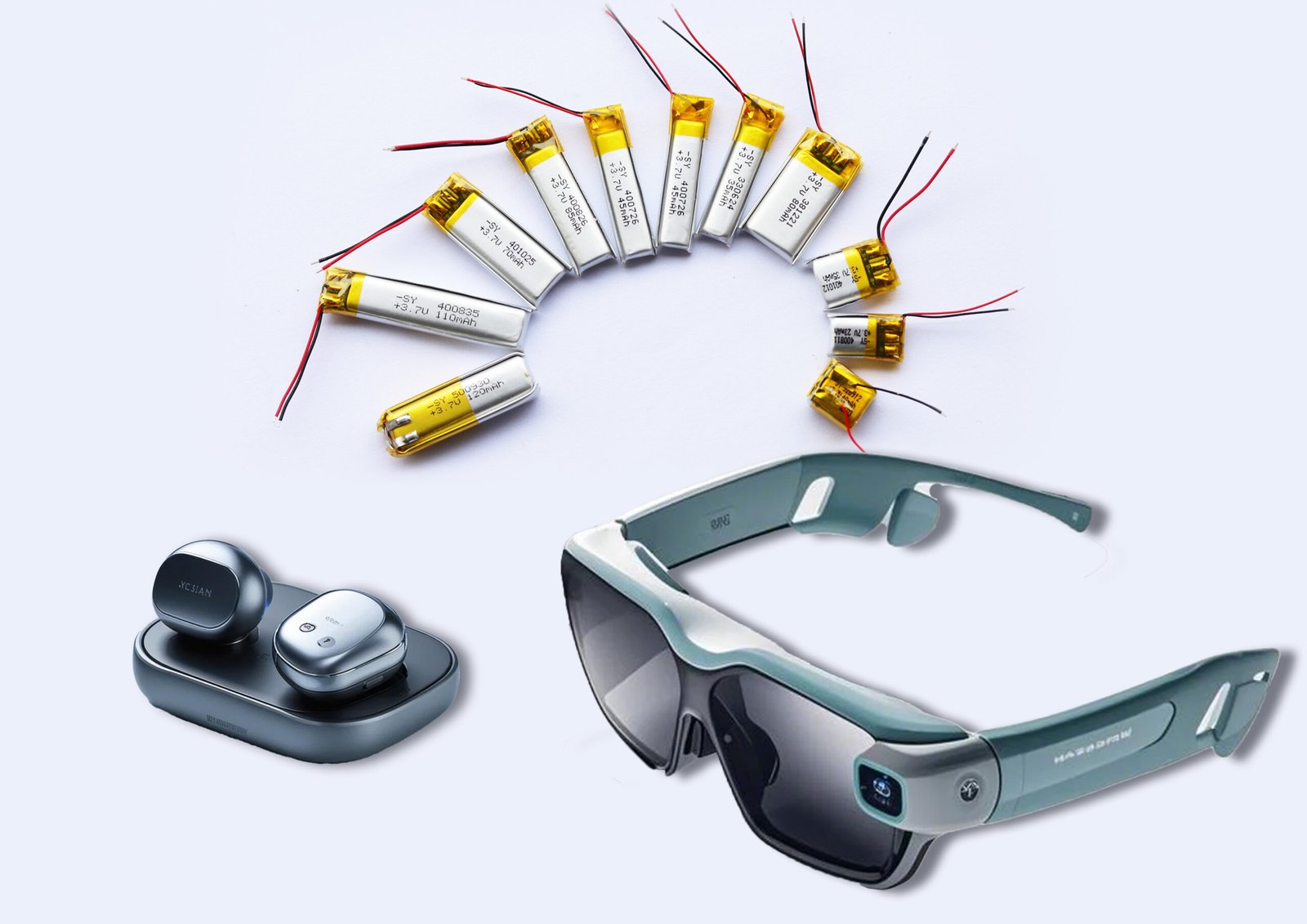
Table of Contents
ToggleIntroduction
Choosing the right battery type is crucial for optimizing performance, safety, and longevity in electronic devices. Lithium-ion (Li-ion)1 and lithium-polymer (LiPo) batteries2 are the two most commonly used rechargeable battery technologies3 today.
Lithium-ion batteries offer higher energy density and faster charging4, while lithium-polymer batteries5 provide flexibility in shape and improved safety. The best choice depends on the specific application.
This article compares these two battery types across key factors such as composition, energy density, charging speed6, safety, cost, weight, lifespan, and ideal applications.
Understanding Lithium-Ion and Lithium-Polymer Batteries
Both Li-ion and LiPo batteries are rechargeable and rely on lithium-ion technology for energy storage.
Key Difference:
- Li-ion batteries7 use a liquid electrolyte inside a rigid case.
- LiPo batteries use a polymer gel electrolyte, allowing for a flexible, lightweight design.
- LiPo batteries are generally safer, while Li-ion batteries offer greater energy efficiency8.
Energy Density Comparison
Energy density determines how much power a battery can store per unit weight.
Li-ion batteries have higher energy density9 (150-250 Wh/kg) than LiPo batteries (100-200 Wh/kg). This makes Li-ion the preferred choice for devices requiring long battery life, such as smartphones and laptops.
| Battery Type | Energy Density (Wh/kg) | Ideal Use Case |
|---|---|---|
| Li-ion | 150-250 | Smartphones, laptops, power banks |
| LiPo | 100-200 | Drones, RC vehicles, wearables |
Charging Speed and Efficiency
Charging speed is crucial for usability.
| Battery Type | Charging Speed | Efficiency |
|---|---|---|
| Li-ion | Faster | Higher (Less heat loss) |
| LiPo | Slower | Moderate |
Li-ion batteries charge faster due to their superior electrolyte conductivity10, making them ideal for fast-charging applications11.
Safety and Risk Factors
Safety is a key consideration, as lithium batteries can overheat and become hazardous if not handled correctly.
| Risk Factor | Li-ion | LiPo |
|---|---|---|
| Overcharging | High risk | Moderate risk |
| Thermal Runaway | Possible | Less likely |
| Physical Damage Sensitivity | Lower | Higher |
| Swelling & Leakage | Less common | More common |
LiPo batteries are generally safer as their gel-like electrolyte12 reduces the risk of leakage and combustion. However, they are more prone to swelling if damaged13.
Cost and Production Considerations
| Battery Type | Production Cost | Affordability |
|---|---|---|
| Li-ion | Higher due to liquid electrolyte containment | More expensive |
| LiPo | Lower production costs | More affordable |
LiPo batteries are typically cheaper to manufacture and integrate into products due to their flexible form factor.
Weight and Shape Differences
Weight and form factor influence how a battery fits into a device.
- Li-ion batteries are rigid and heavier, limiting design flexibility.
- LiPo batteries14 are lighter and can be molded15 into various shapes, making them ideal for slim, compact devices.
| Feature | Li-ion | LiPo |
|---|---|---|
| Weight | Heavier | Lighter |
| Flexibility | Limited | High |
| Durability | More durable | Less durable |
Battery Lifespan and Durability
Battery lifespan is measured in charge cycles (full charges before significant capacity loss).
| Battery Type | Charge Cycles (Avg.) | Longevity |
|---|---|---|
| Li-ion | 500 - 1000 | 2-3 years |
| LiPo | 300 - 500 | 1.5-2 years |
Li-ion batteries last longer than LiPo batteries under normal usage conditions.
Best Applications for Each Battery Type
| Application | Preferred Battery Type |
|---|---|
| Smartphones & Laptops | Li-ion (Longer runtime, higher density) |
| Drones & RC Vehicles | LiPo (Lightweight, flexible shape) |
| Wearable Devices | LiPo (Compact and flexible design) |
| Power Banks | Li-ion (Higher energy storage) |
Environmental Impact
Both battery types pose environmental concerns due to lithium mining and e-waste.
- Li-ion batteries have higher disposal risks due to liquid electrolytes.
- LiPo batteries require safe handling16 to avoid puncturing and leaks.
- Recycling programs17 exist for both types to reduce environmental harm.
Final Verdict: Which Battery is Better?
Choose Li-ion if:
✅ You need higher energy density for longer battery life.
✅ You prioritize fast charging and efficiency.
✅ You require a longer lifespan (laptops, power banks, smartphones).
Choose LiPo if:
✅ You need a lightweight and flexible battery (drones, wearables).
✅ You prioritize safety and lower risk of leakage.
✅ Your device requires a custom battery shape.
Conclusion
Neither battery is universally better—the choice depends on the application. If energy density and longevity are the priority, Li-ion is better. If flexibility and safety are key, LiPo is the way to go. Selecting the right battery ensures optimal performance and durability.
-
Explore the benefits of Lithium-ion batteries to understand why they are preferred in many devices. ↩
-
Learn about the unique features of LiPo batteries and how they compare to other technologies. ↩
-
Stay updated on the latest innovations in rechargeable batteries to make informed choices. ↩
-
Learn how faster charging affects battery life and performance, which is essential for modern devices. ↩
-
Discover the benefits of lithium-polymer batteries, including safety and design flexibility, to make informed choices. ↩
-
Exploring charging speed can help you choose the right battery for your needs, enhancing your device's usability. ↩
-
Explore this link to understand the benefits and applications of Li-ion batteries in various technologies. ↩
-
Learn about the energy efficiency of different battery types and their impact on performance and usage. ↩
-
Understanding energy density is crucial for evaluating battery performance and efficiency in various applications. ↩
-
Exploring this concept will provide insights into how electrolyte properties affect battery performance and efficiency. ↩
-
Learning about fast-charging applications can help you understand their impact on technology and consumer electronics. ↩
-
Exploring the role of gel-like electrolytes can enhance your knowledge of battery technology and safety measures. ↩
-
Learning about battery swelling can help you take precautions to ensure the longevity and safety of your batteries. ↩
-
Exploring the benefits of LiPo batteries can reveal why they are preferred for modern, compact devices. ↩
-
Discover how the ability to mold batteries influences the design and functionality of electronic devices. ↩
-
Learning about the safe handling of LiPo batteries is crucial for preventing accidents and ensuring safety during use. ↩
-
Exploring recycling programs can provide insights into how to responsibly dispose of batteries and reduce environmental impact. ↩

